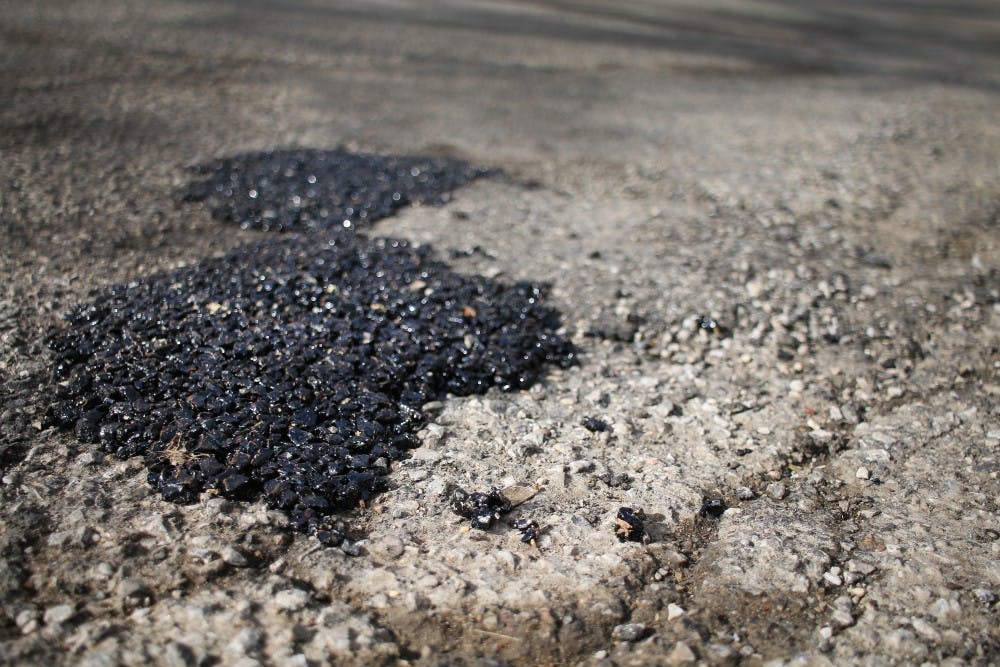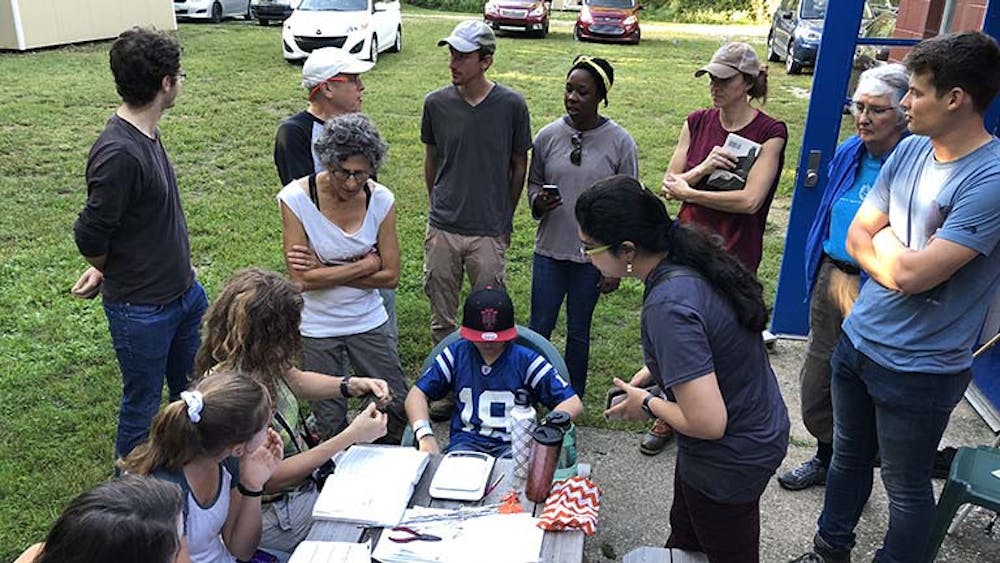Rain and cold weather is never a good mix for potholes. But after last Thursday’s storm, Bloomington is not messing around when it comes to fixing them.
Bloomington’s Department of Public Works hired local highway contractor Crider and Crider to help fill potholes from flooding last week, according to a press release.
The National Weather Service reported more than five inches of rain Feb. 7 near Bloomington. The heavy rain caused recently-filled potholes to be dislodged, according to the release. A deep freeze overnight then caused excess water to create even more potholes.
The department will pay Crider and Crider $1,520 a day to cover a three-man crew and equipment to make the repairs. The expenses will be covered by the street department’s budget, Adam Wason, director of Bloomington’s public works department, said.
Wason said it has never used private assistance for potholes before.
“Thursday was severe enough that we did feel the need to put in extra resources,” he said.
The city’s street crews filled almost 650 potholes without private assistance last week, according to the release. Crider and Crider will work alongside the crews for four or five days to speed up the repair process.
Wason said the crew will work until the end of the week before re-evaluating how much more time will be needed.
“The biggest factor here is what additional weather we might face in the next week or so,” he said.
Additionally, the Public Works Department will soon have a new asphalt hot box reclaimer, which was ordered before the storm using the department’s 2019 budget. The device, which heats up materials like asphalt to make road repairs, cost $28,484.
Applying asphalt only works well in warmer temperatures, Wason said. The colder the ground is, the less likely the asphalt is to be compacted enough, which means it will not last as long.
In the winter, crews use a less durable “cold mix” to repair roads instead.
With the hot box, crews will be able to heat up the cold mix more efficiently, which will offer a more permanent solution, he said.
The city has used hot boxes before, but Wason said the old device does not work as efficiently as it once did.






